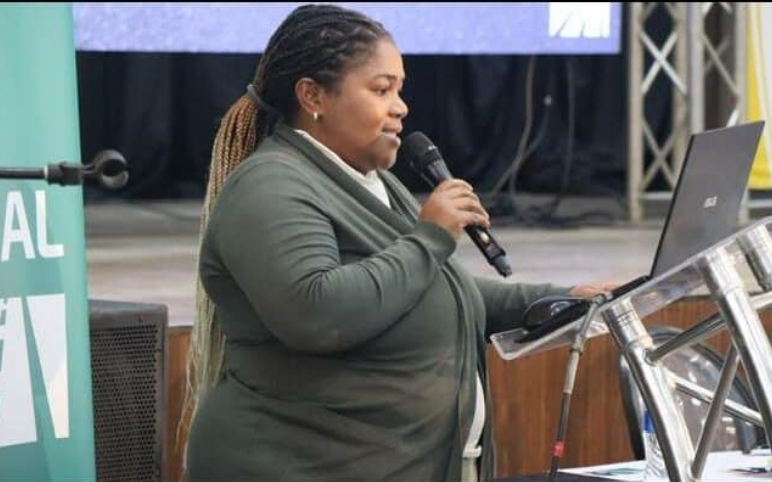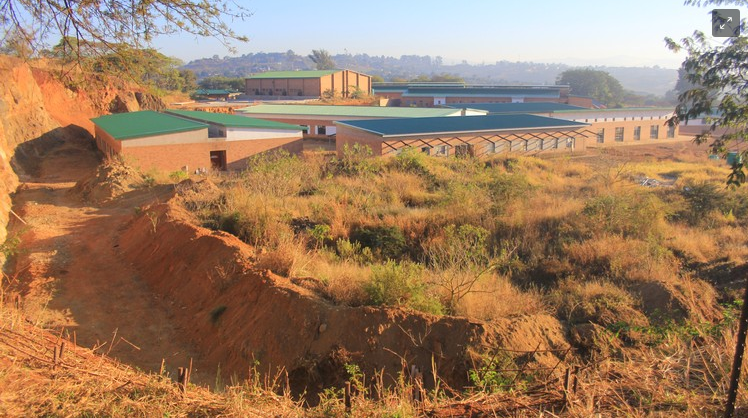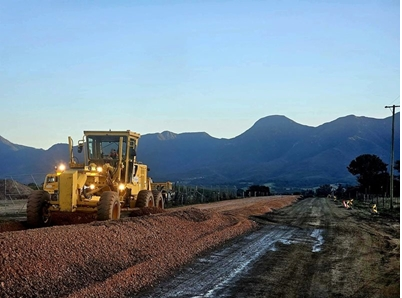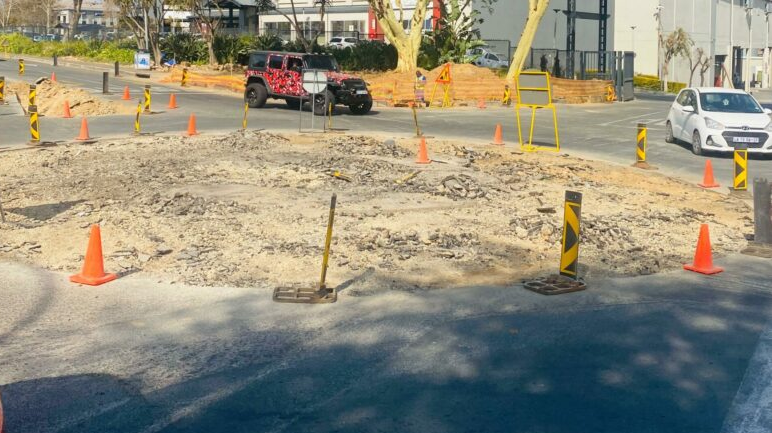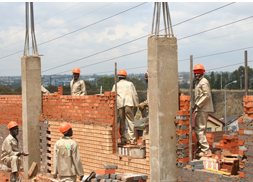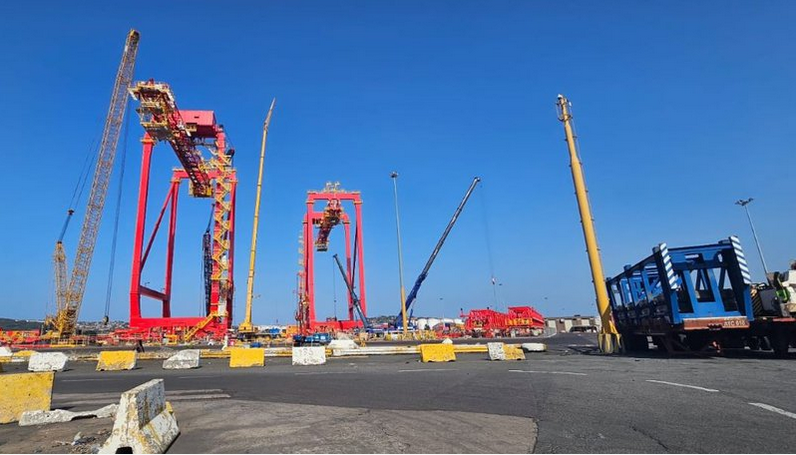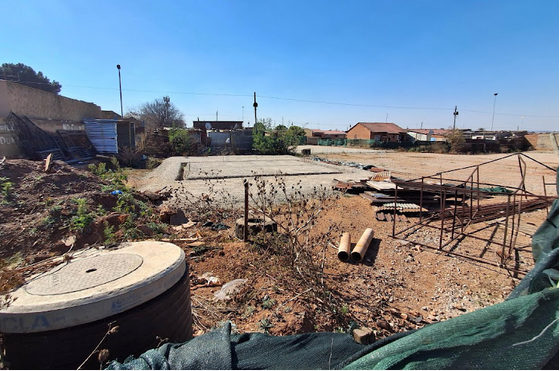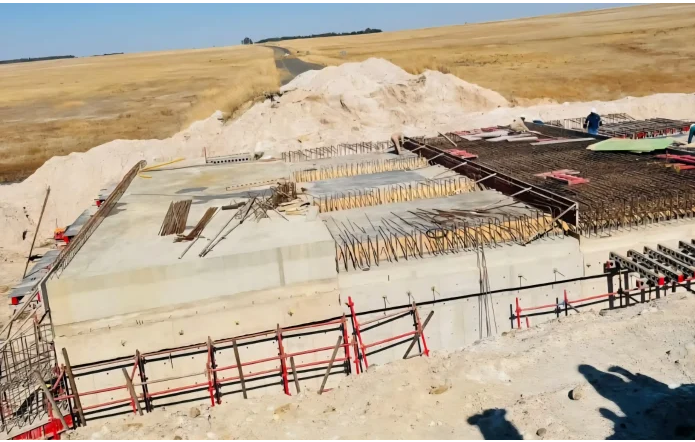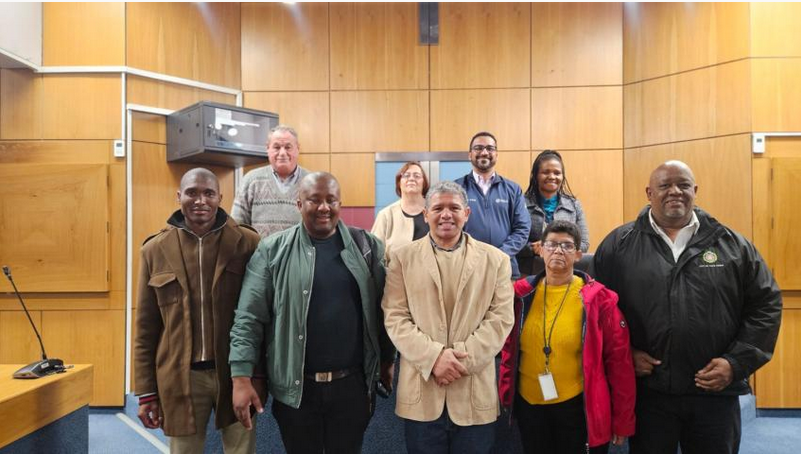CSIR refuses to back down on specialist's suspension

Advertising
01-12-2008
Read : 11 times
Business Report
johannesburg - the council for scientific and industrial research (csir) has refused to back-pedal on its decision to suspend water politics specialist anthony turton for a presentation that allegedly departed substantially from a written paper he had circulated and for speaking to the media.
turton's paper warns that south africa faces serious social instability and a major threat to future economic development because the quality of the country's water supply is degrading so much that it is becoming unfit for human and industrial consumption.
on thursday the csir issued a statement in which it said it did not "gag" turton but suspended him for inappropriate statements to the media. it said it would engage with turton to resolve the matter.
the council said turton was one of 10 keynote speakers at its conference on november 18. the research institution said a written paper, which was included in the conference proceedings, had been circulated beyond the csir in the weeks before the conference. a slide presentation for overhead display was then withdrawn because it departed substantially from the written paper.
"the csir has a duty and a right to protect the image of the organisation," said the council. "this applies to the quality and content of publications and presentations made in the name of the csir."
it said the csir executive deemed the presentation unsuitable and instructed it be withdrawn because the "packaging" of the content included inappropriate visual material such as graphic pictures of execution by "necklacing" during xenophobic violence earlier this year. this would have portrayed the csir as insensitive to the victims and the audience.
it said the presentation had a poor demonstration of links between cause and effect. for example, it contained several pictures of a child with birth defects and a statement that she lived in an area affected by mining waste, making strong inferences from a single data point.
the council added: "unfortunately, turton chose not to use the organisational processes to raise a grievance about his presentation being withdrawn. instead, he made inappropriate statements to the media.
"these statements are deemed by the csir to have brought it into disrepute and led to his suspension, pending an investigation.
"he subsequently made further statements to the press, which gave the impression that the csir is suppressing debate on the issues of water, despite his written paper being available on the csir website."
the council said it recognised that there were serious and urgent issues facing water resource managers in south africa and that the concerns raised by turton's paper, which remained in the public domain, were not new opinions.
the csir added: "in the past, these issues have been raised by csir researchers, including turton, in a number of forums - from government to public platforms."
in his paper, turton notes that the three most developed countries in the southern african development community - south africa, botswana and namibia - do not get the global average rainfall of 860mm a year. south africa receives a paltry 497mm a year on average.
turton argues: "south africa has no more surplus water and all future economic development (and thus social wellbeing) will be constrained by this one fundamental fact that few have as yet grasped."
he says an important implication of this fact is that south africa has lost its dilution capacity, so all pollutants and effluent streams will need to be treated to ever higher standards before being discharged into communal water courses or deposited in landfills.
he argues that the country either needs to lower its developmental targets or it has to radically rethink how to mobilise its scientific, engineering and technological capacity.
if the first course is chosen, turton's report warns, "social instability will grow and south africa will slowly slide into anarchy and chaos".
he adds: "the recent xenophobic violence is … but a foretaste of things to come if we follow this trajectory."
referring to what he terms the uhuru decade, he says this has been manifest across africa when a liberation movement has inherited infrastructure that works for about 10 years before starting to break down through lack of investment in operation, maintenance and skilled human capacity.
turton says: "in south africa's case that infrastructure was particularly robust so it has lasted a decade and a half, but it is now clearly under pressure and if left alone will collapse piece by piece in the mid-term future."
turton shows that in 1980, spending on water infrastructure was r40 billion (at 2008 prices) but this declined to less than r2 billion in 2000. the figures also show a trend towards the erosion of the assurance of supply needed to grow the economy in a sustainable manner.
he refers to a presentation made by the sa institute of civil engineers to the parliamentary portfolio committee on water affairs and forestry in june. the presentation reveals that a significant proportion of south africa has no civil engineering professional support in a local authority.
"it is precisely these rural areas that are most likely to be affected by the deteriorating water quality arising from eutrophication in rivers and dams," says turton.
he adds that the institute's presentation shows there is a large bulge of ageing white male engineers followed by a massive gap in the age group from 35 to 49. this is the age group that has been most affected by affirmative action employment rules and "sadly, many of this cohort have left the country as a result".
Recent News
Here are recent news articles from the Building and Construction Industry.
Have you signed up for your free copy yet?
